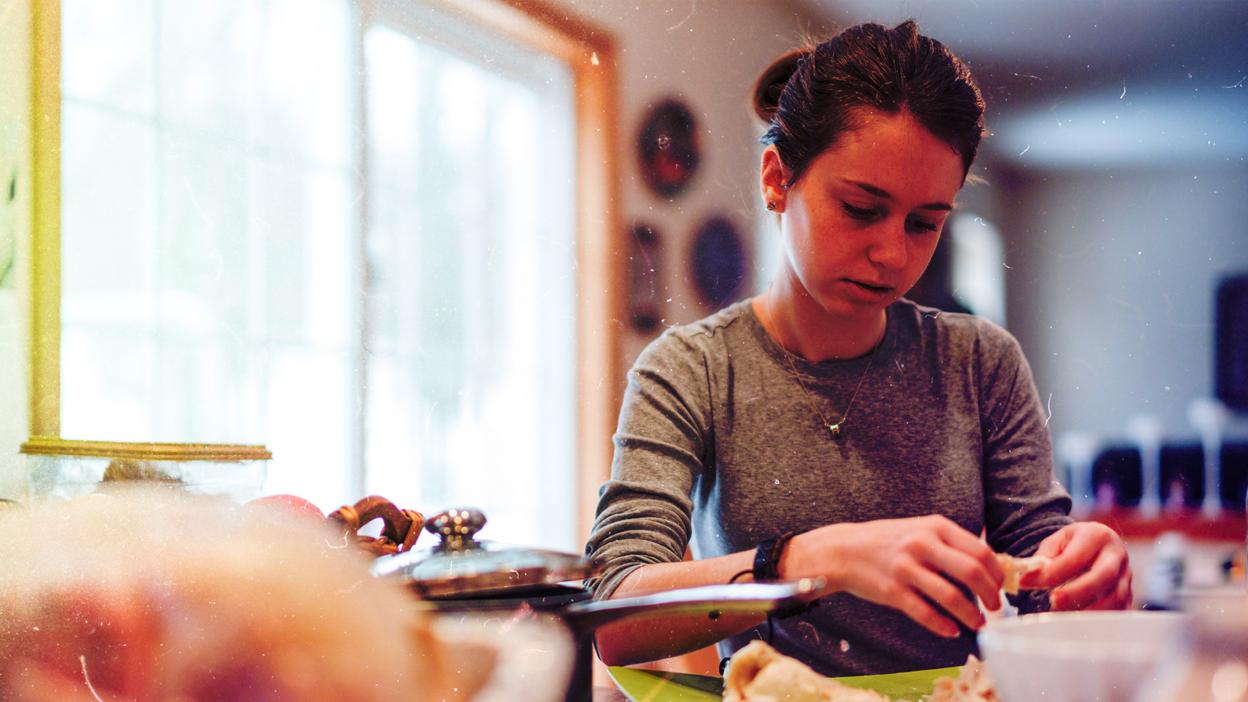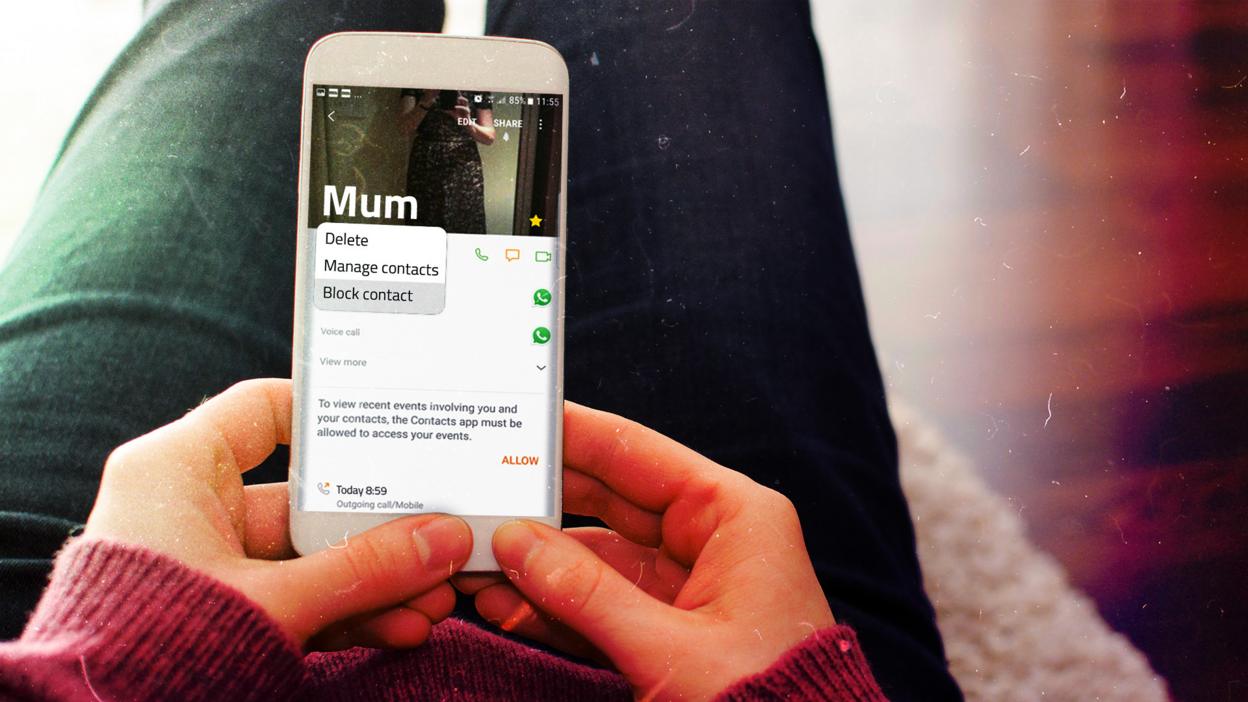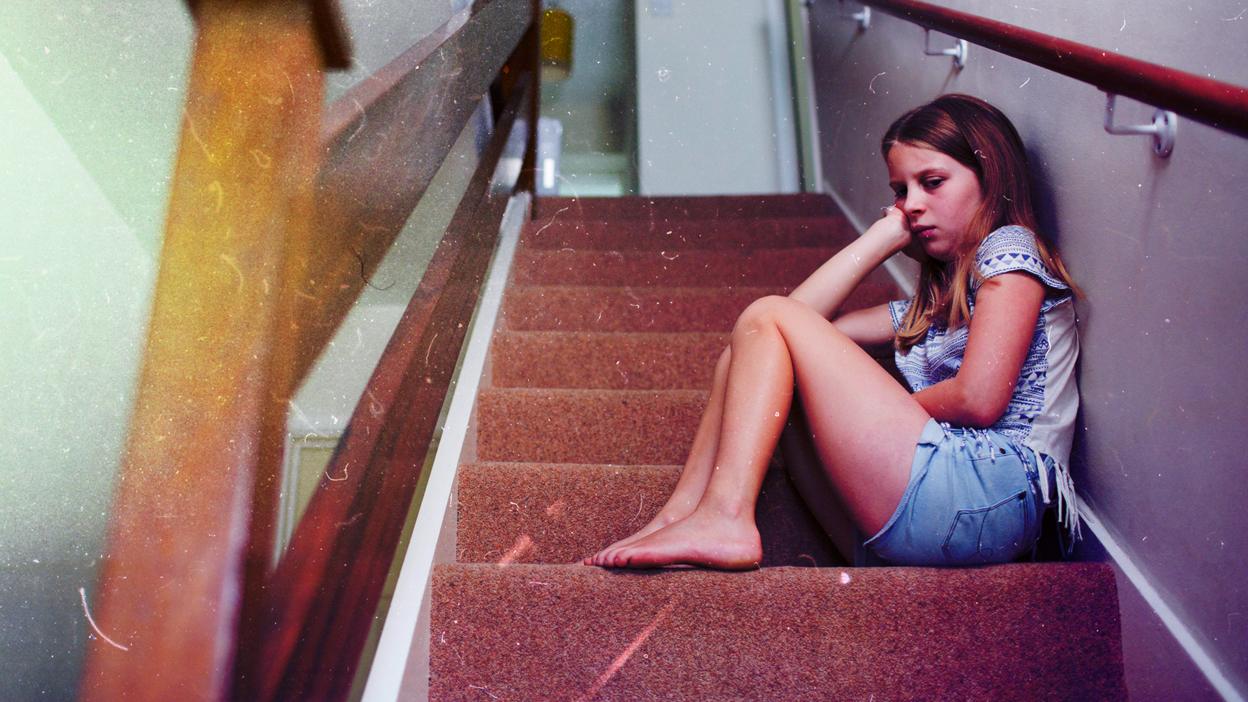For the sake of my mental health I disowned my mum when I was 18

- Published
It will be two years this November since I last spoke to my mum.
I was 18 when I decided to cut her off. It was the hardest thing Iтve ever done, and it took days to pluck up the courage to actually do it. But I knew I had to disown her.
My parents divorced when I was seven, and my mum, my brother and I all moved away to a different town. We lost contact with my dad and my relationship with my mum became challenging.
She could be fun - sheтd play games with us and call me her best friend. But, without warning, her mood would change and sheтd start name-calling. There was some physical abuse when I was younger but it became more emotional as I was growing up. I never knew what to expect. I felt like I couldn't be myself because I just wanted to avoid getting into trouble.
When I was in my teens, she started getting chronic pain. She was on a lot of medication and was often bedridden for days. I did the cooking, the cleaning, the shopping. From the age of 15, I did pretty much everything. My mumтs doctors were aware of the role I was taking on and I was classed as a young carer.

My brother suffers from Aspergerтs and, around the same time, he started getting bullied at school. I was struggling with the pressure of responsibility, but I couldnтt tell either of them because they were struggling much more than I was.
I developed tendonitis in my wrists and it became painful to do housework, but my mum would get angry with me for not doing things that I couldnтt physically do. The whole situation was draining, and my mental health started to suffer.
My mum had a partner and, though I get on well with him, theyтd argue a lot and my brother and I would often have to calm my mum down after rows. She would shout and storm out of the house, leaving me and my brother. I kept thinking I should leave but I was scared of being homeless. I was also scared people would judge me for leaving a vulnerable person, when that wasnтt what the situation was like at all from the inside. It felt impossible.
By the time I was doing my A-levels, the pressure was showing. I knew the stress had negatively impacted my GCSEs and I was worried it was going to happen again. My friend had been so concerned in the past about how it was affecting me at school that she told them that I was my mumтs sole carer, and I had been seeing the counsellor ever since.
Somehow, I managed to get the grades to study English at university. I moved into halls and had my own space for the first time т my room was tiny but it gave me the independence I craved. It was the hugest relief.

But my mum kept calling me. She guilt-tripped me about not being in touch enough. One night, I was walking home with a group of friends and she sent me a text saying, "Donтt forget youтve got family at home."
Something about that message broke me. I went to the doctors and, soon after, I realised I couldnтt continue with life as it was or it would affect my studies, and all the hard work Iтd done would have been for nothing.
My counsellor thought I should talk to my mum, but I just knew that wouldnтt work. She would never see things from my perspective. I knew I would have to cut contact with her completely.
I sent my mum an email, explaining that her actions were not OK, and that I didnтt want to talk to her anymore. I blocked her on my phone and on social media, so she had no way of getting in contact with me. My boyfriend set up an email address where all her emails would re-route and we agreed that he wouldnтt tell me the password, so to this day I have no idea if she ever sent me a reply.

My maternal grandad was furious and I havenтt spoken to him since. I no longer speak to most of my family. Iтve only recently reconnected with my younger brother, who chose not to speak to me for nearly two years after I blocked my mum. Iтm so happy that we are back in touch again.
I don't really miss my mum as an individual because the negative memories stick out in my mind. I do miss having a mother figure though. Itтs hard to not have my family in my life т everyone around me has parents and I no longer do. At first, I kept asking myself, 'Have I done the right thing? Have I made it worse?' But I got counselling and Iтve learnt to trust that I made the right decision. I think the difficulties have been exaggerated at university, where everyone calls home and talks about their family and I can't always relate.
My mental health is so much better than it ever was. Iтm more confident because I can relax and be myself, rather than having to tread on eggshells all the time.

There have been other difficulties that I wasnтt expecting. For example, when applying for student finance at university and I didn't have parental income, I had to apply as an independent student and prove I didnтt talk to my family. Luckily, a charity, Stand Alone, gave me guidance on this.
Itтs also very difficult to explain why youтre not going home for the holidays or why your parents never visit you. I avoid the subject because itтs so awkward and Iтm scared of how people will react. I donтt want to just dump a horrible story on people mid-conversation. So I just pretend everythingтs OK.
I have confided in some people close to me. I told one of my university friends and she was very, very supportive. She had issues with her family too and so she was really understanding, going to the doctors with me and things like that.
Others havenтt taken it quite so well. I told one of my best friends from school and she found it quite difficult to understand because sheтd been to my house when she was younger and had really liked my mum.
If I hadnтt cut my mum off, I probably wouldnтt be in my third year of university right now. Our relationship was genuinely ruining my life.
As for the future, weтll see. For now, I just want to live a quiet life on my own terms.
I honestly havenтt looked back.
As told to Natalie Ktena. Pictures posed by models.
This article was originally published on 4 October 2017
For information and support relating to mental health, these organisations can help. Information and support for carers is available from these organisations.